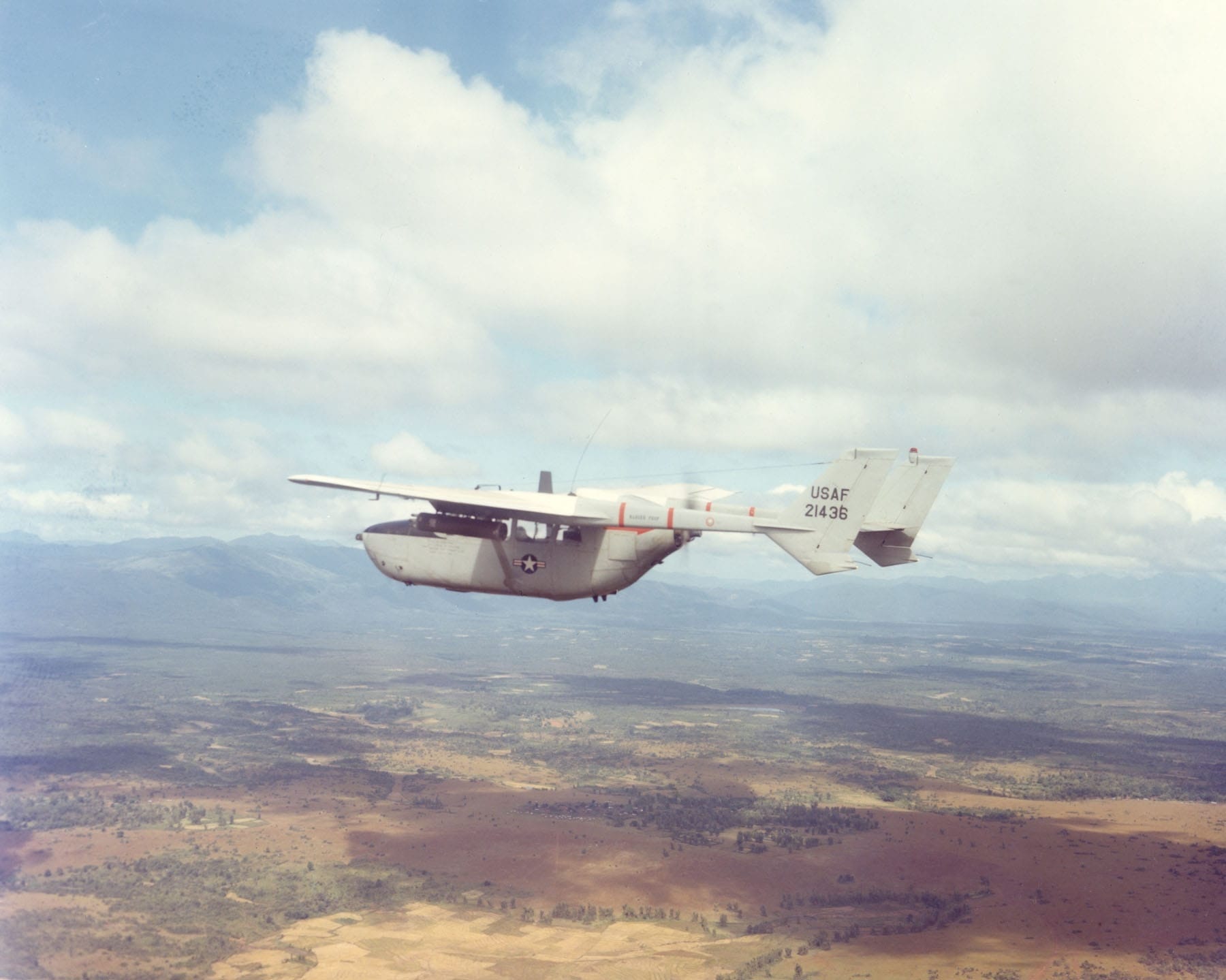Table of Contents
Dave Patterson
This year National Vietnam War Veterans Day coincides with Good Friday, a day that commemorates the ultimate sacrifice Christ made for all mankind. So it is fitting for Americans to remember and revere the sacrifice of those who answered their country’s call and went to war in a faraway place called Vietnam. In his first year in office, President Donald J Trump signed into law the Vietnam War Veterans Recognition Act of 2017, designating March 29 as the date of remembrance.
There are many stories of heroism and gallantry during the Vietnam War. Liberty Nation takes this opportunity to recognize a group who flew the forward air controller (FAC) missions, vital to meeting and defeating the enemy in Southeast Asia. Those who saw the 1981 movie BAT 21 may be familiar with the term FAC and know what an O-2A aircraft looks like, seen in the film starring Gene Hackman, Danny Glover, and Jerry Reed.
The Skies Over South Vietnam
A half-century ago, men too young to know better would strap on twin-engine, civilian Cessna 337 Super Skymaster airplanes, converted for military use, and head out to find the enemy. The O-2A was a unique configuration, with one engine in front pulling and another in the back pushing, sometimes referred to as a “push me, pull you.” At a minimum altitude of 3,000 feet in South Vietnam, the O-2A FAC would fly to an assigned or, in many cases, a discovered target location in South Vietnam, Laos, or Cambodia, and the mission was on.

A typical close air support mission would begin in the sky over an enemy position. Once the FAC sorted out the friendly forces from the bad guys, fighter bombers were called in to attack the enemy ground forces, Viet Cong or North Vietnamese soldiers. On such engagements, following the rendezvous and check-in, the FAC would brief the fighters on the target and the enemy ground fire to be expected.
Banking his aircraft and then entering a steep dive, the FAC would bring the round lighted gunsight reticle to bear on the target (there was nothing computer-aided), line up the target with the crosshairs, and mark it with a 2.75-inch diameter, four-foot-long white phosphorus rocket that exploded on the ground with a large white plume of smoke.
As Barry Levine wrote in his Historynet.com article, “This Plane Made All the Difference in Vietnam – So Did Its Aviators,” the gunsight mounted on the front glare shield was very inaccurate. Consequently, “To improve accuracy, some pilots used a grease pencil mark on the windshield, coordinated with the seat and the pilot’s height, as an alternative gunsight,” Levine explained. “Hit my smoke” was the FAC’s instruction to the fighter bombers so they could more accurately hit the target.
The FAC missions in South Vietnam, Laos, and Cambodia during the Vietnam war were similar. The aircraft and the altitudes flown differed, the targets and call signs varied, but the mission – finding and marking every target for fighter bombers to destroy and reporting on the battle damage (mission success) — was straightforward.
A representative account of one unit’s experience is well told in a remembrance of the April 1972 North Vietnamese offensive around the provincial capital of An Loc. Bob Murphy wrote in his History, The Sundogs:
“We suffered aircraft losses. Over An Loc, we lost three O-2s, two A-37s, three C-130s, one AC-119, numerous helicopters, including three Dustoffs (white choppers with large red crosses, used for medical purposes), several VNAF [Vietnam Air Force] aircraft, and one AC-130, which was hit by an SA-7 [Shoulder-fired Anti-aircraft missile] and recovered at Tan Son Nhut. We lost an 0-2 near Bao Loc, not too far from Song Be, and two in Cambodia.”
The C-130 cargo aircraft resupplied the US advisers and South Vietnamese Army troops at An Loc. AC-119s were C-119 1950s-era cargo aircraft converted into gunships. The AC-130 was a gunship with formidable firepower from 40-millimetre guns and a giant 105-millimetre cannon sticking out the side. As Sundog FACs worked the air over An Loc, one of the A-37 fighters was shot down. The pilot was listed for many years as one of the unknowns from the Vietnam War at Arlington National Cemetery. A report from Liberty Nation explained, “As forensic identification improved, in 1998, the remains from the Vietnam War were identified as US Air Force First Lieutenant Michael Joseph Blassie, who was killed flying close air support for defenders of the town of An Loc, South Vietnam, in 1972.”
The 1972 Spring Offensive
The 1972 Spring Offensive and the battle for An Loc were the last significant engagements, after which the US FAC mission in South Vietnam wound down. In the final accounting, the sacrifice in lost lives and futures for the US forward air controllers was considerable. The statistical summary presented in the publication A Brief History of Forward Air Controlling is sobering. Of the 104 O-2As lost, 82 were in combat at a cost of 72 pilots killed in action. Of all the FAC aircraft designated as slow FACs lost to enemy fire, 32 per cent were O-2As.
FAC pilots acquitted themselves with honour. Many of them, generally, and most of the Sundog FACs, were second lieutenants who had not been out of flight school long. Yet the FACs were in charge of the war when it came to the skies over the enemy. On this day, Liberty Nation honours those men.








